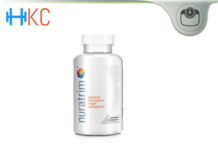If you’ve landed on this page, you might be on the hunt to enhance your gut support by Omega-3 fish oil Good gut health is not only vital for overall well-being of the body but it adds value to your life too. It guarantees all the nutrients required by the body to function properly are absorbed and maximally used.
With numerous information online and influencers promoting miscellaneous Omega-3 supplements and diets claiming better gut health, it can be overwhelming and misleading. Worry not, we are here to provide you a complete and honest guide on how to maximise your gut support with Omega-3.
Omega-3 healthy fats are widely known for keeping your gut as well as lungs, heart, blood-vessels, skin and other bodily functions in excellent condition. Furthermore, lack of omega-3 can evidently cause intestinal dysfunction likewise autoimmune challenges, fatigue, and inflammation and skin conditions.
Specifications of Omega-3 – What is it?
Omega-3 fatty acids comprises of polyunsaturated fatty acids (PUFA). They are not naturally produced by your body. However, they are essential to consume via supplements. Or you can go for a more natural source in your diet as they provide substantial improvement on your gut function and prevent related diseases.
These good fats help keep inflammatory responses in check for a more balanced gut function. Moreover, Omega-3 acts as important immune system mediator. They affect your immune cells allowing them to produce antibodies against harmful antigens.
To give you a better comprehension of Omega-3 fatty acids, here’s additional information so you make an informed decision to protect your gut support.
3 main kinds of Omega-3 fatty acids are as follows:
- Alphalinolenic acid (ALA) is found in walnuts and red meat, canola oil, flaxseed and soybean. It majorly acts as an antioxidant for your gut.
- Eicosapentaenoic acid (EPA) is found in fish, especially cold-water fish such as tuna and salmon. It reduces pain and swelling throughout the body and prevents blood clotting. Additionally, it has positive affects on triglycerides (fats in the blood) by reducing them to a normal level keeping your gut healthy.
- Docosahexaenoic acid (DHA) is also found in fatty cold-water fish like tuna and salmon. You can opt for fish oil supplements for a more accessible alternative of its consumption. As well as, it helps in lowering blood levels of triglycerides.
Benefits of Omega-3 for Improved Gut Health
Our gut includes the main macro digestive organs like stomach, intestines, oesophagus etc. It also includes various bacteria and microorganisms, one such is the gut micro biome.
It’s a microorganism which plays a vital role in maintaining the gastrointestinal health by nutrient absorption and overall immunity. Omega-3 has great impact on gut micro biome as it keeps this good bacteria alive and fully functioning in our gut.
The digestive system also plays a great role in smoothly running our overall bodily functions. If there are recurring digestive symptoms like bloating, inflammation, acid reflux or constipation, it’s a clear indication that your gut health is deteriorating.
This is where Omega-3 fatty acids step in as they have anti-inflammatory properties. It not only reduces chronic inflammation and bloating but will prevent diabetes, inflammatory bowel disease (IBD), leaky gut, various heart diseases and skin damage.
Moreover, there are many researches that indicate the boost that Omega-3 fatty acids give to your gut. This helps in forming short-chain fatty acids which help your digestion function effectively.
Omega-3 Consumption – Natural Source or Supplement?
One of the benefits of Omega-3 getting attention from health advisors and professional dieticians is its readily available in both forms:
- Natural source of food including leafy vegetables, nuts, fatty fish and seeds.
- Supplement form.
Natural Source of Omega-3:
A very common natural source of fatty acids Omega-3 is found in varieties of fatty fishes like:
- Sardines
- Salmon
- Mackerel
- Tuna
- Anchovies
- Herring
- Sturgeon
- Freshwater trout
- Flounder
- Bluefish
These fishes include excessive levels of DHA and EPA. If sea-food is a regular part of your natural diet then you won’t have trouble meeting your needs through natural food sources alone.
Furthermore, Omega-3 fatty acids can also be found in plant-based sources like:
- Vegetable oil
- Walnuts
- Whole flaxseed
- Flaxseed oil
- Soybean oil
- Chia seeds
- Edamame
- Algae oil
So, if you are a vegetarian, need not fret. However, Alpha-linolenic acid (ALA) is also derived from sources that are plant-based which can convert in DHA and EPA but only in limited amounts.
Supplement Form of Omega-3:
We understand, not everyone can afford to have sea-food regularly. Also, if you are one of those people who isn’t fond of eating fatty fishes then we have the perfect solution. Omega-3 fatty acids come in safe supplement form as well. They are easily available and having various options in the market will let you find one in your budget too.
Common Omega-3 supplements include:
- Various fish oils
- Seed oils like flaxseed oil
- Krill oil
- Fish liver oil
- Fish oil.
However, before starting any supplement course it’s advisable you consult your health practitioner first. Make sure the company you opt for or the one your doctor recommends is FDA approved and has all the ingredients clearly listed.
Conclusion: Let Omega-3 Improve Your Gut Health
Omega-3 fatty acids have multiple health benefits but it’s crucial to consume it in moderate amount to avoid the dangers of over consumption. According to the National Institutes of Health (NIH), men should take up pnly 1.6 grams of Alpha-linolenic acid (ALA) daily and women should consume 1.1 grams.
The importance of Omega-3 fatty acids cannot be denied when it provides overall gut protection, balances inflammation, helps with digestion and also prevents ulcerative colitis (stomach condition) and Crohn’s disease as well.
It’s also worth mentioning that keeping your mind and body in optimal health requires sufficient information of what you put in your body. We hope we have provided adequate insight about the benefits of Omega-3 DHA and APA fatty acids to let you lead a well-balanced life.























